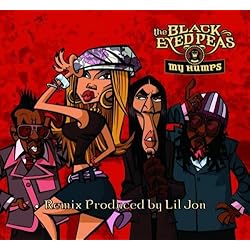Today marks the tenth anniversary of the brutal killings at Columbine High School in Littleton, Colorado, wherein two teenagers, Eric Harris and Dylan Klebold, went on one of the worst killing sprees in American history, turning their school into a slaughterhouse. The boys killed twelve of their classmates, one teacher, injured over two dozen, and then turned their guns on themselves.
I remember that day very well. I was a junior in high school, seventeen-years-old, about the same age as both the killers and their victims. I was shopping with my father at Circuit City when all the store employees turned all the television sets onto CNN. We watched in horror as the scene unfolded: bloodied, crying teenagers fleeing their school under flurries of snow; S.W.A.T. teams assembling on playing fields; distraught parents and police. We held our breath in fear as the now-infamous "boy in the window" dangled out of the second-story library and fell to safety below him - I even remember how the newscasters broke away at that point, worried that the boy wouldn't make it. (On a lighter note: I also remember that Columbine taught me to hate Larry King with a furious passion -- his blunt, careless questioning of child witnesses scorched me to the core. Jesus, Larry, they're kids. Stop barking insensitive questions at them like: "So how did it feel to watch your best friend die?" Lord.)
None of us understood it. How could two kids manage to turn an entire school into chaos? How could this happen in America? What did it mean for us as a society? Was there some way of preventing this? Could it happen again? Could it happen to us?
I think a lot of people underestimate the impact that the massacre at Columbine had on American high schoolers at that time. Yes, other disasters such as the 9/11 terror attacks or the Hurricane Katrina fiasco perhaps carried more national/global consequences, but if you went to public school during the Columbine disaster, then you were afraid. At least, I was afraid. It was all my friends and I talked about for weeks: what would we do if our school was suddenly taken over by shooters? Would we hide? Would we run? Would we try to stop them? And who among our peers could be capable of such violence? The kinda-shifty girl with the sword collection? The tubby kid we picked on who always wore camouflage and bragged about pouring deer blood on his face? The semi-goth kids who listened to the same music the Columbine shooters listened to?
And why, why, did this ever happen in the first place?
It was all anyone wondered. Media talking-heads and moral majority leaders pointed fingers at easy targets like Marilyn Manson, Natural Born Killers, and video games like Doom -- all while plastering the faces of Klebold and Harris on the front pages of national magazines and newspapers, turning killers into rock stars while never taking a look at themselves. Copycat shootings occurred, numerous bomb threats were called into schools across the nation, and yet somehow, no one in the media ever asked themselves, "In broadcasting their deeds in such explicit, obsessive detail, did we in fact reward them for their actions? Did we turn two mentally-disturbed teenagers into martyrs?"
No. Instead, rock music, video games, and movies bore the brunt of the blame - as did the general "apathy" of our generation. We were kids with nothing to live for, they said. We had no common cause to unite around, like the sixties generation with their righteous anger towards the Vietnam War, or the Greatest Generation's sacrifices during World War II. Our generation was a bunch of worthless, spoiled, malleable brats who could easily be shaped by fiction and rumors. Klebold and Harris were two "freaks" who'd been bullied by their Abercrombie & Fitch-loving peers, and their weak minds, so easily warped by violence on film and in games, crumbled and vowed revenge.
But that's not what really happened. Not by a long shot.
There's an excellent article on CNN.com today:
Debunking the myths of Columbine, 10 years later. The article goes into detail about some of the myths popularized after the events: that the boys were members of a "Trench-Coat Mafia," that they targeted minorities and people who had bullied them, that they killed a girl for believing in God. Many of the things we believed at the time about Columbine have proven to be untrue -- including the motives behind the attack.
The fact of the matter is this: the boys were sick. The journals they left behind are proof positive that these were not ordinary kids. They suffered from genuine mental illnesses, evidenced by the detached, circular logic of their writing. Harris was a bonafide sociopath, and Klebold suffered from major depression. They did not see their peers as "real people" -- not because they were brainwashed by video games, but because they were sick. In their minds, they were the only "real" people; everyone else was insubstantial, and therefore, killing them was nothing to feel guilty over. These boys were literally mentally ill, and there was nothing anyone could have done to rectify that.
Could the shooting at Columbine have been prevented? Possibly. Maybe if the parents had seen more. Maybe if the teachers and guidance counselors at the school had taken a greater interest. Maybe if the media hadn't made such a fuss over previous school shooters. Maybe if guns had not been so readily available for these kids ...
But ah, maybe. Maybe, maybe. We'll never know. Disaster is like that. We'll never know if 9/11 could have been prevented if there had been more interagency cooperation or attention from our nation's leaders. We'll never know if the Katrina disaster could have been averted if local, state, and federal officials had taken the storm more seriously prior to its landfall. We'll never know where our country might be if Al Gore had gotten his recount in 2000, or if we had never invaded Iraq, or if we'd gotten involved in World War II earlier, or if JFK or Martin Luther King hadn't been assassinated, or so on and so on into infinity.
We can't live in what-ifs and fantasy. This history is our reality, and we must come to terms with it as best we can. The massacre at Columbine happened, and will undoubtedly happen again. Just look at what happened at Virginia Tech: another clearly mentally-ill young man shoots up his school in the worst mass shooting in American history -- and has the foresight to send a tape of himself just before the shooting to NBC news.
But it's not the media that causes these tragedies. It's not rock music, or movies, or video games. It's sickness, the kind of sickness that has been a part of humanity for as long as we have existed on this earth, and I think that's what's so hard for so many people to grasp in these tragedies: that there are no simple answers, no smoking guns, no easy prevention.
The truth is this: we will never fully understand what happened in Colorado on April 20, 1999. The hard answers died with the perpetrators and their victims. We will never make sense it all, just as we will never understand how 19 men could hijack airplanes and topple towers, or why an entire nation has been essentially brainwashed by a dictator, or how millions of people could die in systematic genocides throughout history. Sometimes, terrible things just happen, and all we can do is pick up the pieces and continue on with our lives as best we can.
But we should never forget. We cannot forget. And on days like today, when the world stops to remember the victims, we should also remember the perpetrators: not as martyrs, not as heroes, not even as misguided, sick individuals, but as two young boys who will always remain a puzzle to us. Maybe if we remember that nothing comes with an easy explanation, we will be less likely to point fingers or grasp at straw-truths.
I don't know. When I set out to write this post, there was a lot I wanted to say, and I think I've said it -- but what sense have I been able to make of all this? Not very much, I don't think. And maybe that's the point of it all: that it's been ten years, and I still can't come to grips with what happened on a cold day in April.




